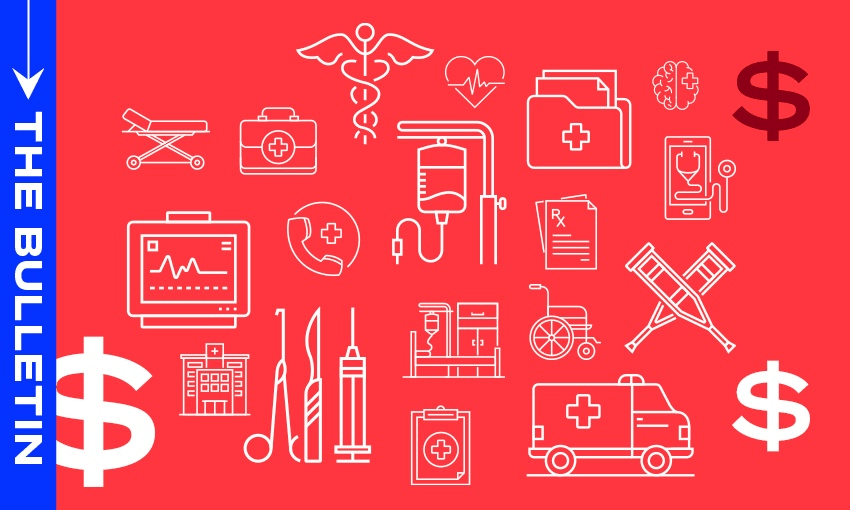The government is spending the week focused on the first signs of progress within a reformed health system with wait lists, the post-code lottery and workforce shortages on the agenda, writes Anna Rawhiti-Connell in this excerpt from The Bulletin, The Spinoff’s morning news round-up. To receive The Bulletin in full each weekday, sign up here.
Cataract surgery announcement a step towards eliminating post-code lottery
Yesterday’s announcement from the government on surgical wait lists for cataract operations was heralded as significant not just because of the hope it may give those whose sight has been worsening as waiting lists have grown. As the Herald’s Nichola Jones reports, a recent study that analysed 44,000 patients referred for cataract surgery between 2014 and 2019 found more than a quarter of those who were declined surgery “did not meet the visual acuity requirement for driving a private vehicle in New Zealand”. The announcement from health minister Ayesha Verrall was held up as one of the first examples of the health reforms in action, with the introduction of a nationally standardised “scoring” system and threshold for surgery replacing disparate regional thresholds. It’s an example of the goal at the centre of the reforms to end the “post-code lottery” in health, where access to treatment has been determined by where you live.
Concerns raised about how increased number of surgeries will be resourced
The move has been welcomed but eye surgeons have already raised concerns about how the increase in the number of operations enabled by the standardisation will be resourced. “Workforce shortages” has become a kind of catch-all phrase to describe myriad staff shortages across the health sector. Speaking to Jack Tame on Q&A on Sunday about the ongoing delay in reporting on emergency department wait times, Te Whatu Ora chief executive Margie Apa managed expectations about what that data might reveal when it is released by citing that ubiquitous phrase. The Herald published an investigation from Alex Spence (paywalled) into the state of our emergency departments over the weekend and it doesn’t paint a great picture, with staff reporting unprecedented strain and compromised patient care.
More than 6,300 overseas health workers have joined New Zealand’s health workforce since immigration setting changes
This morning, immigration minister Andrew Little announced that more than 6,300 overseas health workers have joined New Zealand’s health workforce through the Accredited Employer Work Visa scheme and the Green List Straight to Residence pathways. Immigration settings for healthcare workers have been substantially changed and loosened over the last year. In an assessment from various healthcare workers a year on from the health reforms coming into force, safe staffing, pay and working conditions feature prominently in the list of ongoing concerns. President of the Association of Salaried Medical Specialists, Dr Julian Vyes says he’s seen “no evidence there has been significant recruitment to senior clinical staff roles.”
Does reform improve health outcomes?
It’s fair to say no one thought change would happen overnight. Expectations on the speed of change enabled by the reforms have been carefully managed since the get-go. Two academics from the University of Otago make a very fair case for giving new initiatives, in this instance Te Aka Whai Ora, the Māori Health Authority, a chance to succeed. Professor Robin Gauld has been studying health systems here and around the world for years and spoke to RNZ’s Kathryn Ryan yesterday. I recommend listening for his assessment of where things are at. Ryan asks him whether these kinds of reforms actually improve health outcomes. With so much hope vested in the future promise of what these reforms can achieve, Gauld points out that health outcomes are influenced by so much more than the system and it may be difficult to even peg future improvements on these reforms.
